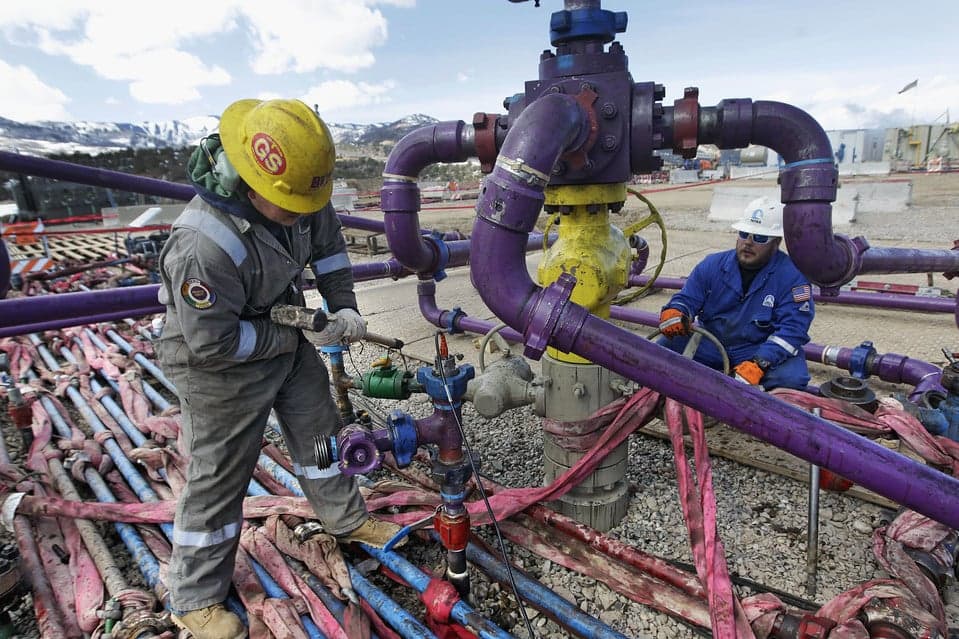There's a generation of workers nearing retirement and the pipeline of talent needs filling. Pink Petro aims to open up opportunities in oil and gas for women, who make up only 15 percent of the current oil and gas workforce.
Pink Petro is a for-profit company funded by Shell and others in the energy industry to focus on recruiting women, who make up only 15 percent of the current oil and gas workforce, according to America's Petroleum Equipment and Services Association.
That 15 percent drops in half when it comes to higher-paying technical jobs, says Houston-based Pink Petro CEO Katie Mehnert.
Mehnert created Pink Petro four years ago, after a flight back to Houston. "I was sitting next to a gentleman," she told CNBC, "and he said to me, 'What's a pretty young lady like you doing in a dark, dangerous business like oil and gas?'"
She decided more women needed to be in this "dark" and "dangerous" — and well-paying, rewarding, challenging — industry critical to a functioning world.
Women like Christina Smith, a mother of three. Smith used to manage a Subway store, then she worked in a commercial dive shop before being laid off. She went back to school, where she heard about a scholarship program from Marathon and Shell. That paid for her education, and now she's a shift supervisor at the Shell plant in Deer Park. "My dad's exact words were, 'Kid, you hit the jackpot!"
Mehnert is seeing some more progress at the executive and boardroom level. Vicki Hollub became the first woman to lead a US oil company in 2016 when she took over as President and CEO of Occidental Petroleum.
One problem with this hiring initiative: It's happening at time when US crude prices have fallen 25 percent in a year, the first decline and biggest drop since 2015.
Pink Petro's Mehnert says the industry has gotten better about riding the ups and downs and still hiring, a theory that may be tested in 2019. "We need to be long on talent and culture."
She says that there are two keys to a successful effort to hire women. First, it's just convincing women to apply at all. Mehnert intentionally picked the color pink — even though she doesn't really like it — to be eye-catching, to capture the attention of women and tell them the energy story. "It's a story that nobody really understands," she says. "I've flown the world, I've seen things I never would have seen."
The second issue is that once women are hired, advancement can be tough. "The biggest barrier women face in the industry is visibility and access to what opportunities exist," she told CNBC.
Shell’s Smith says she hasn't faced any discrimination or harassment. "I come in, I do my job, I work hard, I want to learn, I like to help people, and because of that I feel respected, I feel heard."
Plus, she laughs, "The pay is excellent."
img: Pink Petro

